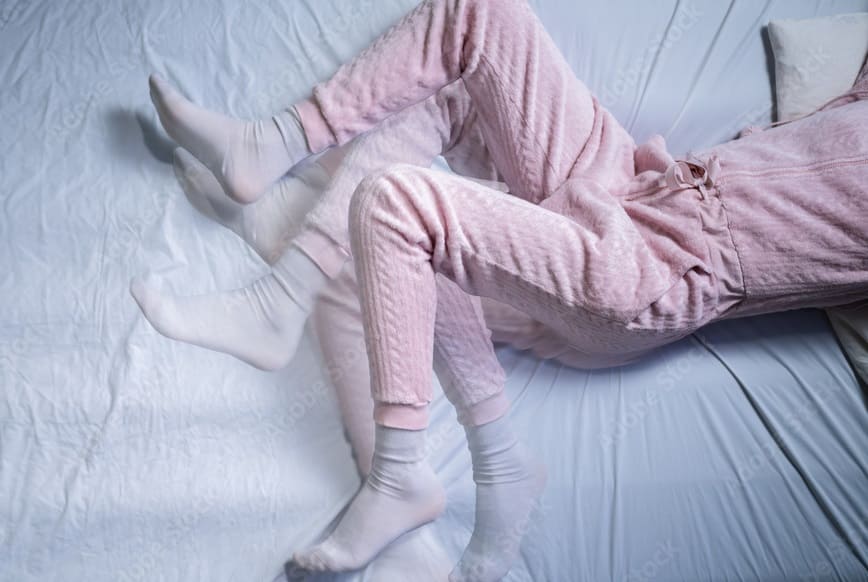Have you ever felt an uncontrollable urge to move your legs, especially at night? If so, you might be experiencing Restless Legs Syndrome (RLS)—a neurological condition that affects millions worldwide. It’s more than just an annoyance; it can disrupt sleep, impact daily life, and lead to chronic fatigue. Let’s dive into what causes RLS, its symptoms, and how you can manage it effectively.
What is Restless Legs Syndrome?
Restless Legs Syndrome (RLS), also known as Willis-Ekbom disease, is a neurological disorder characterized by an uncomfortable sensation in the legs, usually occurring during rest or inactivity. People with RLS often describe these sensations as tingling, crawling, itching, or throbbing, which can only be relieved by movement. The symptoms tend to worsen at night, making it difficult to fall and stay asleep.
What Causes RLS?
The exact cause of RLS remains unknown, but several factors have been linked to its development:
- Genetics: A family history of RLS increases the risk of developing the condition.
- Iron Deficiency: Low iron levels in the brain have been associated with RLS.
- Chronic Diseases: Conditions like diabetes, kidney disease, and Parkinson’s disease can contribute to RLS symptoms.
- Pregnancy: Some women experience RLS during pregnancy, especially in the third trimester.
- Medications: Certain antidepressants, antihistamines, and antipsychotic drugs may trigger or worsen RLS.
Symptoms of RLS
Restless legs syndrome symptoms can vary in intensity, but common signs include:
- An urge to move the legs, especially at night
- Uncomfortable sensations like burning, crawling, or pulling
- Temporary relief with movement
- Difficulty sleeping due to leg discomfort
- Daytime fatigue and trouble concentrating due to poor sleep
How to Stop Restless Legs Immediately
If you need immediate relief from RLS symptoms, try these quick remedies:
- Stretching and Massaging: Gently stretching or massaging your legs can ease discomfort.
- Applying Heat or Cold: Use a warm compress or an ice pack to soothe the sensation.
- Taking a Warm Bath: A relaxing soak can help reduce leg discomfort.
- Walking or Moving Around: A short walk can provide temporary relief.
- Practicing Deep Breathing: Relaxation techniques can help ease stress-related symptoms.
Home Remedies for RLS
In addition to lifestyle changes, these proven home remedies can help manage RLS:
- Epsom Salt Baths: Soaking in a warm bath with Epsom salts can help relax your muscles.
- Drinking Herbal Teas: Chamomile or valerian root tea can promote relaxation and better sleep.
- Essential Oils: Lavender or peppermint oil can be massaged onto the legs for soothing effects.
- Maintaining Hydration: Dehydration can worsen symptoms, so drink plenty of water.
- Avoiding Triggers: Reduce caffeine, alcohol, and nicotine intake to minimize RLS episodes.
How to Manage and Treat Restless Legs Syndrome?
While there’s no cure for RLS, several lifestyle changes and treatments can help alleviate symptoms:
1. Lifestyle Changes
- Exercise Regularly: Moderate activities like walking or stretching can reduce symptoms.
- Maintain a Sleep Schedule: Going to bed and waking up at the same time every day improves sleep quality.
- Limit Caffeine and Alcohol: These can aggravate RLS symptoms.
- Reduce Stress: Practices like yoga, meditation, and deep breathing can help.
2. Dietary Adjustments
- Iron-Rich Foods: Include spinach, red meat, and lentils in your diet.
- Magnesium and Folate Supplements: These may help some individuals with RLS.
3. Medical Treatments
- Iron Supplements: If RLS is linked to iron deficiency, supplements may help.
- Dopamine Agonists: Medications like ropinirole and pramipexole can improve symptoms.
- Muscle Relaxants and Sleep Aids: In severe cases, doctors may prescribe medications to promote relaxation and sleep.
Final Thoughts
Restless Legs Syndrome may be frustrating, but with the right lifestyle adjustments and medical care, you can find relief. If you suspect you have RLS, consult a healthcare professional for proper diagnosis and treatment. Managing RLS effectively can lead to better sleep, improved energy levels, and an overall better quality of life.
Also Read:
